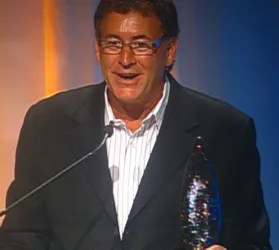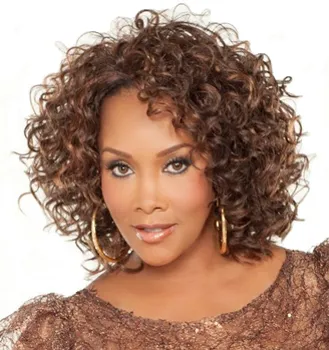
Baby Boomers Flee US Workplace - TalentSmart Defines Emotional Intelligence As Most Important Skill of Successful Leaders
The Leadership Vacuum: What We Lose With The Next Generation
 The mass exodus of Baby Boomers from the workplace has already begun. According to the US Office of Personnel Management, between 2006 and 2010 Boomer retirement will have robbed American companies of nearly 290,000 full-time experienced employees.
The mass exodus of Baby Boomers from the workplace has already begun. According to the US Office of Personnel Management, between 2006 and 2010 Boomer retirement will have robbed American companies of nearly 290,000 full-time experienced employees.
(Image of workers - by Woodsy - All Rights Reserved).
While the financial crisis has forced some to postpone retirement for a couple extra years, we can't count on the majority of them to be fully contributing members of the workforce much longer.
Silver hair, pension funds and personal memories of a Kennedy assassination are not the only things our struggling economic engine will lose when Boomers settle into the quiet life.
 Boomers hold the majority of major leadership roles in the workplace, and their retirement creates a leadership gap that must be filled by the next generations. The question is whether or not their successors are up to the challenge?
Boomers hold the majority of major leadership roles in the workplace, and their retirement creates a leadership gap that must be filled by the next generations. The question is whether or not their successors are up to the challenge?
(Image of work cubicles - by Dreamguy - All Rights Reserved).
For more than a decade now, TalentSmart researchers have been devoted to determining what exactly constitutes a high quality leader. What we've discovered is that emotional intelligence (EQ)--the ability to recognize and manage your emotions and those of other people--is the single most important skill of a successful leader.
A few months ago we decided to see how our future leaders stack up with our current leaders in this critical skill. We tested a group of 10,614 people between the ages of 18 and 80, and broke down their score results into the four generations in today's workplace--Millennials, Generation X, Baby Boomers, and Traditionalists.
When we looked at each of the four core EQ skills separately a huge gap emerged between Boomers and Millennials in self-management.
When it comes to managing their emotions, Baby Boomers reign supreme. Essentially, they are much less prone to fly off the handle when things don't go their way than are the younger generations.
It may not appear that this should create any real cause for concern. After all, retirement has been a fact of life ever since FDR put his John Hancock on the Social Security Act. And the generation who designated Dennis Hopper as their unofficial spokesman proved capable of filling the superhuman-sized work boots of the Greatest Generation. So how hard can it be for the leaders-in-waiting to replace the Easy Rider Generation?
It might be harder than we think for reasons of both quantity and quality. The Baby Boomers enjoyed a significant numbers advantage over the generation they followed, which meant they had a deeper talent pool from which to pick their leaders. The exact opposite is true today.
Boomers outnumber the next generation--Generation X--almost two to one. If only to replace the sheer body count of Boomers in leadership positions, we have to look to the youngest and soon-to-be largest generation in the workforce.
Millennials are sometimes considered the second baby boom. While not quite as numerous as the original Boomers, at 70 million strong Millennials are just 6 million shy of Boomers and they dwarf the 46 million Gen X'ers. Quantity is covered. How about quality?
Culturally, the distinctions between Boomers and Millennials can hardly be overestimated. Coming of age watching cable television during its infancy versus growing up watching TV on cell phones is just one small difference that has helped shape two vastly different outlooks on work and life.
In the workplace, Baby Boomers are used to a structured work environment with planned face-to-face meetings, overtime and the occasional weekend at the office. While most never really learned to love the structure imposed on them by their traditionalist predecessors, Boomers have learned to deal with it.
Generation Y, on the other hand, has never lived in a world without telecommuting, business via Blackberry, and text messages crafted with code words that stump even the most tech savvy among the older generations.
While Millennials' approach may be different than Boomers, many would argue that it isn't any worse. Actually, when you consider how knowledgeable and technically proficient they are, Millennials might even have a leg up on their predecessors in the Information Age.
Their results-only attitude might finally break us free of the mind-numbing Office Space environment where workers are measured mostly by the hours they spend staring at their computer, instead of how efficiently they produce results. Heck, maybe we should turn over the leadership reins to Millennials sooner rather than later, right?
Not so fast. There is a lot more to leadership than being a walking Wikipedia. TalentSmart research shows that emotional intelligence accounts for as much as 58% of job performance in supervisor through CEOs. In other words, while brilliant accountants or engineers are definitely a bonus, their technical skill has virtually nothing to do with good leadership.
As Lee Iacocca realized back in the 1980s when he shook up Chrysler, many of his highest performing financial whizzes were "first-rate bean counters," but only mediocre leaders.
An increasingly downtrodden economy and shaky future mandates that we figure out why our future leaders lag in such a critical skill. Perhaps more important, what can we do about improving it?
We went round and round debating the possible explanations for this chasm in self- management skill between the experienced and youthful. One possibility seemed that coming of age with too many video games, instantaneous Internet gratification and adoring parents have created a generation of self-indulgent young workers who can't help but wear their emotions on their sleeve in tense situations. However, we weren't convinced.
When we looked at the data from another angle the picture became clearer. Self management skills appear to increase steadily with age-60-year-olds scored higher than 50-year- olds who scored higher than 40-year-olds and so on.
That means the younger generation's deficient self-management skills have little to do with things we can't change like the effects of growing up in the age of iPods and MySpace. Instead, Gen Xers and Millennials just haven't had as much life in which to practice managing their emotions. That's good news because practice is something we can give them, while a change in their upbringing is not.
We not only can accelerate the younger generations' development of core leadership skills, we must. Today's ultra-competitive, fast-paced global marketplace won't afford us the time to sit back and wait for the aging process to run its course. Despite the slumping economy, most boomers will retire sooner rather than later. We need to prepare talented twentysomethings for leadership roles today. If we don't teach them how to manage themselves, is it reasonable to expect them to lead us towards a prosperous future?
About the author:
Nick Tasler leads TalentSmart's global research in decision-making, personality and emotional intelligence. His skill at bridging the gap between complex concepts and simple solutions has directly benefited multinational corporations, including GE and Coca-Cola as well as smaller, privately-owned enterprises and industries ranging from government to healthcare, from pharmaceuticals to financial services.
About TalentSmart:
TalentSmart®, a global think tank and consultancy, is the world's leading provider of emotional intelligence (EQ) products and services. TalentSmart® consists of more than 300 certified trainers worldwide and 50 strategic alliances providing exclusive training products available in 25 languages found throughout 150 countries. TalentSmart® serves more than 75 percent of Fortune 500 companies, all three branches of government including the US Senate, internationally based businesses and even royalty abroad. It is headquartered in San Diego, California.
More Information
Please follow me on Twitter at http://Twitter.com/HairBoutique. I look forward to meeting new Tweeple from all walks of Twitter and learning from their Tweets.
Social Media Network Information
Please follow us on Twitter at: https://Twitter.com/HairBoutique. I look forward to meeting new people from all walks of Twitter and learning from their Tweets.

















